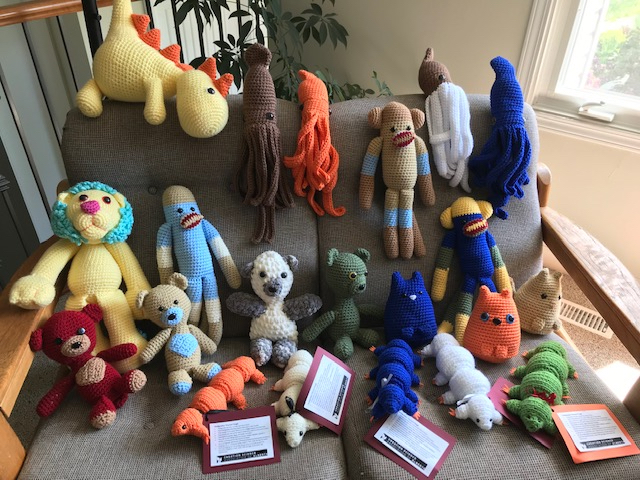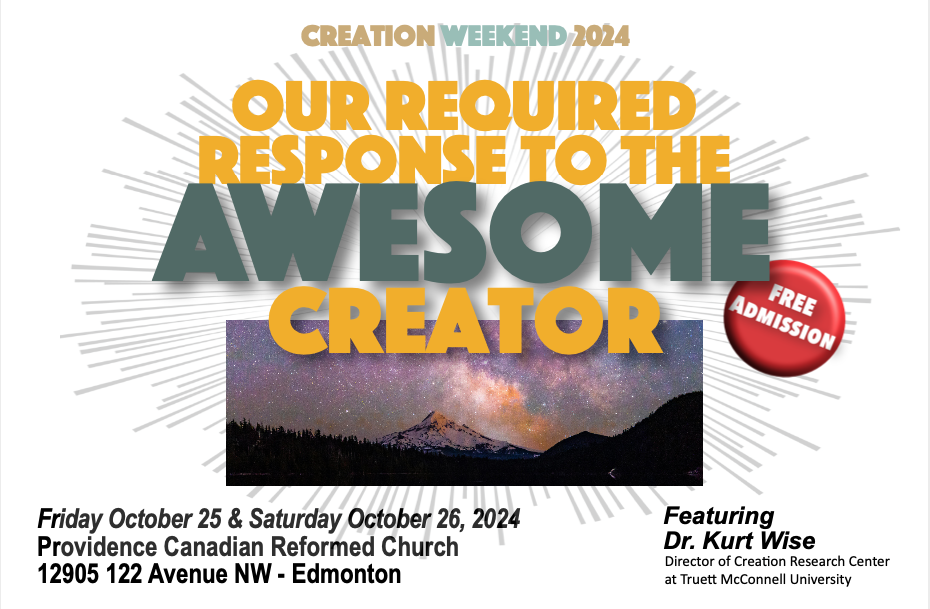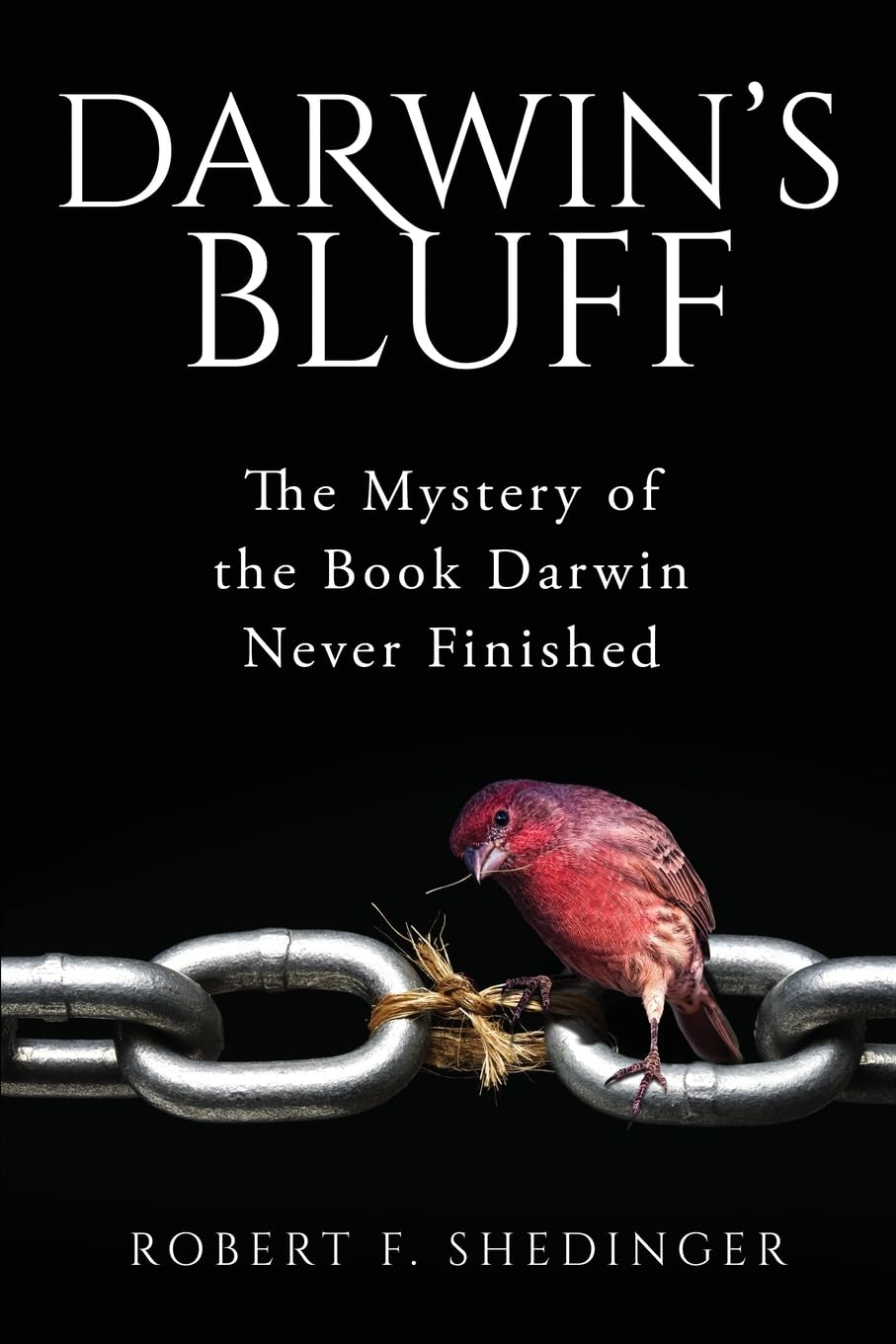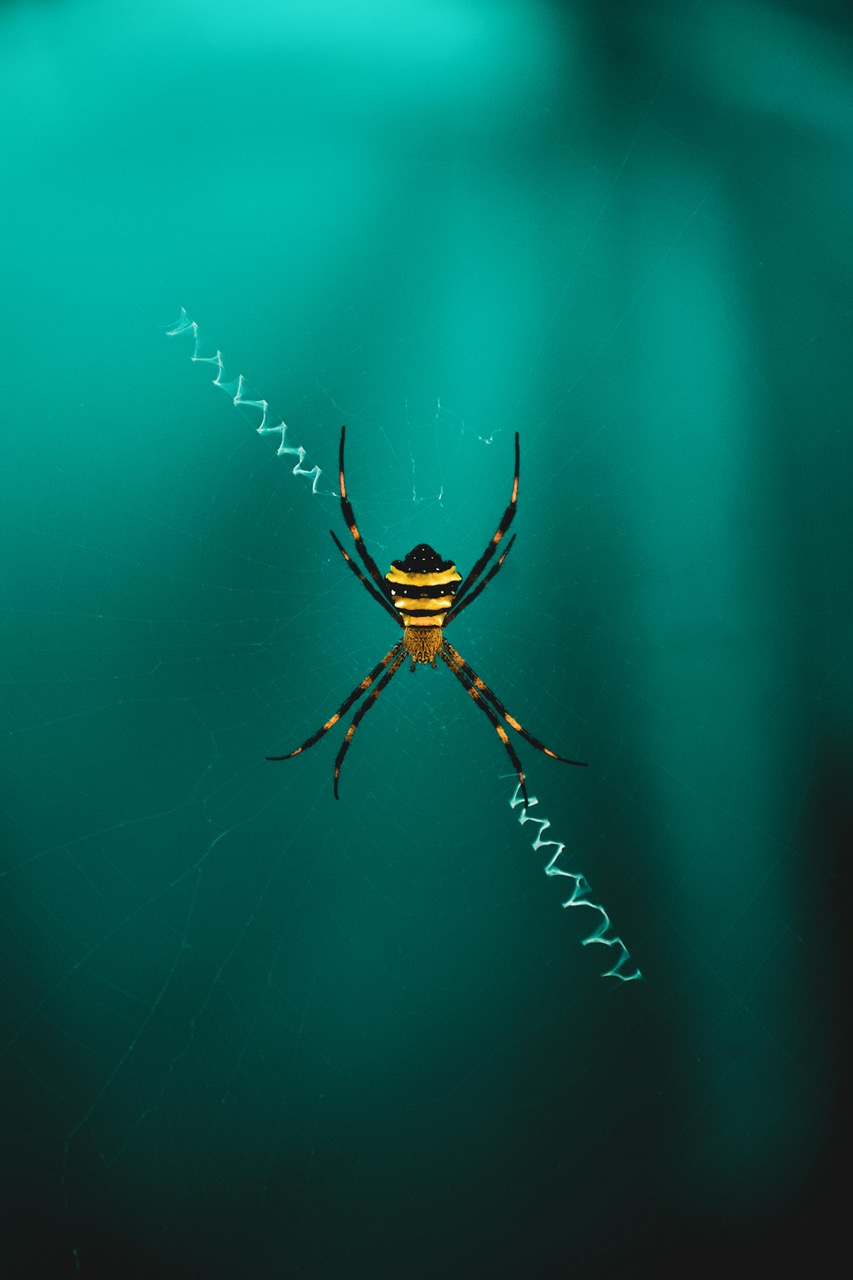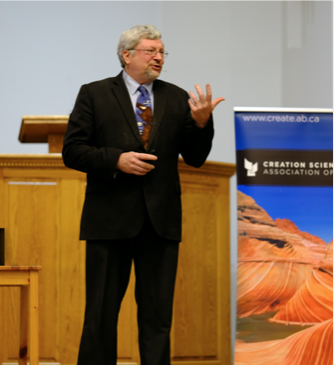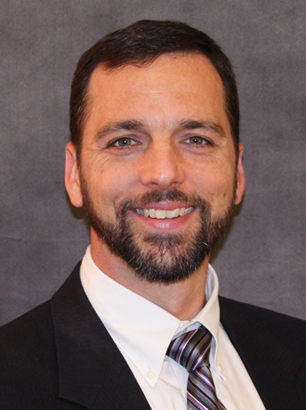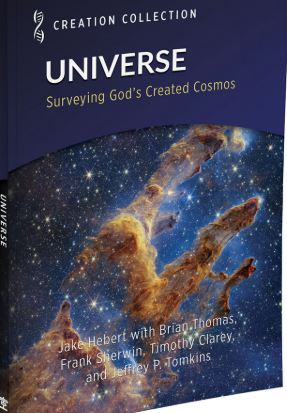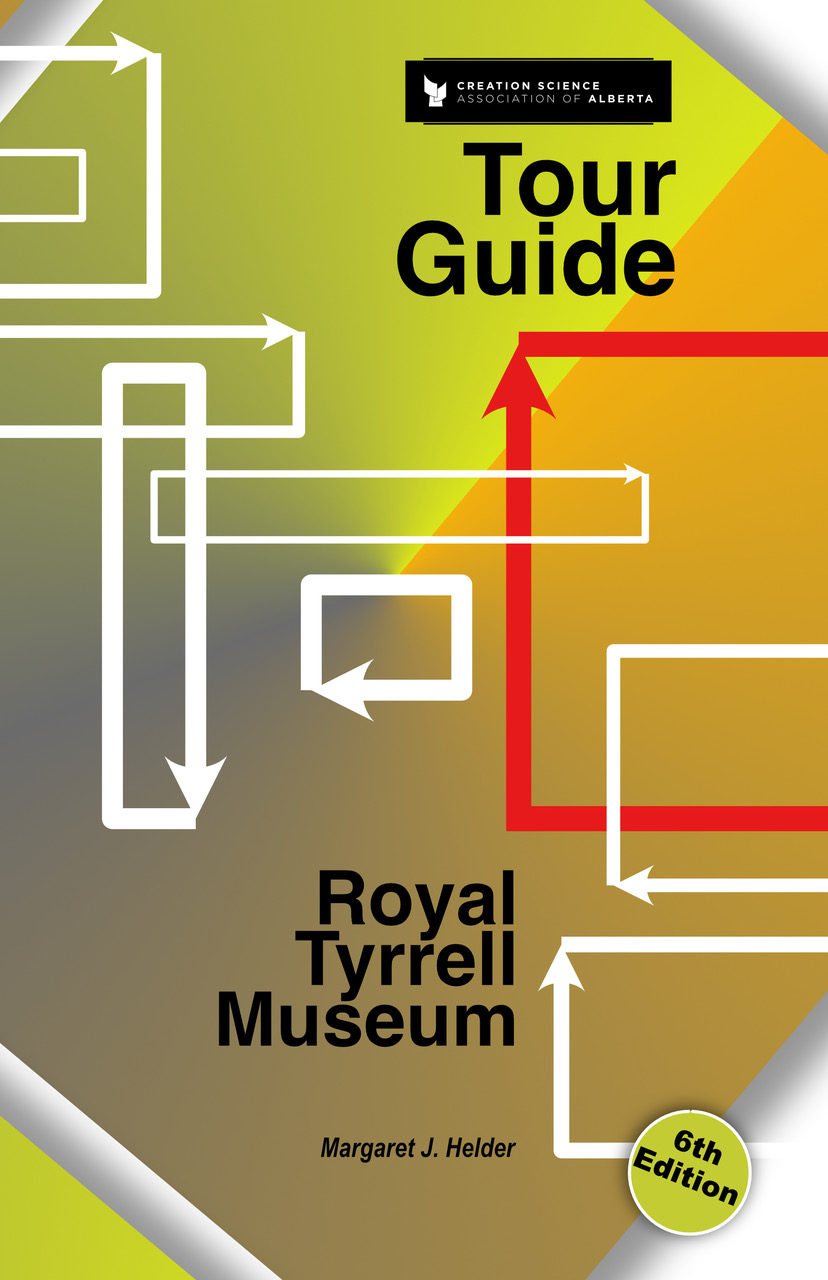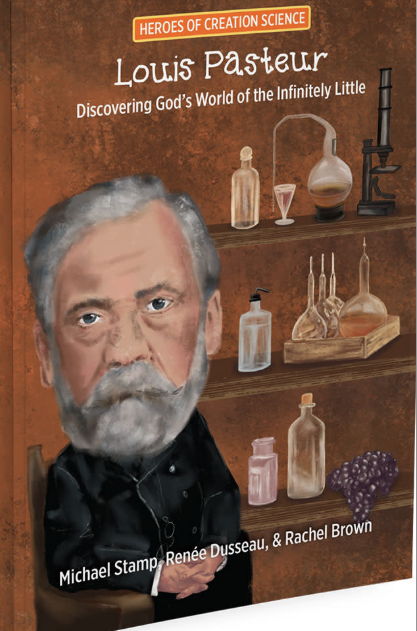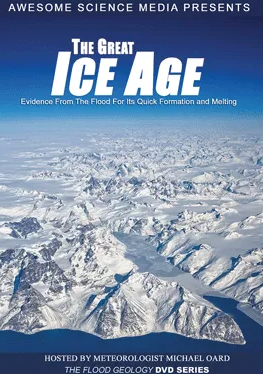Articles » Intermediate
“Strange is this little creature, because the whole organisation of his body is extraordinary and strange and because his external appearance, at the first sight, has the closest similarity to a little bear. This also led me to give him the name little water bear” (cited in Greven 2015).
Read the rest of this entry »Review by Margaret Helder
A just-retired forensic scientist, Dr. Mark Sandercock, has written an amazing book on scripture, science and current attitudes and customs in our modern society and how these compare to biblical revelation. The book is written for all interested Christians, but especially for those who may have doubts about six-day creation and need a little encouragement.
This work is divided into three sections. The first deals with Genesis 1-11. The second section deals with the evolution paradigm and how this does not compare favourably with what we see in nature, or indeed in scripture. The third section deals with several popular practices which plague our society, and why these customs are allowed and encouraged today when former generations did not allow anything of the kind.
Read the rest of this entry » Order OnlineThe objective of education, in general, is to equip upcoming generations to understand their place in society and how to contribute in a meaningful way to the well-being of that society. Christians go further. Each generation seeks to communicate with youngsters our relationship to God, and our relationship to people and the world in which we live. Christians therefore declare that an important part of our mandate as citizens and believers, is to make sure that we are informed about current events and issues such as science which can exert such a dramatic impact on society, especially today. Thus, we seek to acquiesce with, or speak out against, various important policies in government and society. Indeed, few issues today have fashioned the values of society as much as has scientific thinking and the philosophical implications thereof.
Read the rest of this entry »In recent years, people have become really interested in genetics. They ask questions like “Who were my ancestors? What can I learn about my family through our genes? What mix of nationalities do I have?” As the genomes of various species, including humans, have been mapped, scientists have reflected on many issues. One of those issues is molecular clocks.
Read the rest of this entry »Our Required Response to the Awesome Creator!
Featuring: Dr. Kurt Wise, Director of Creation Research Center, Truett McConnell University, Cleveland, Georgia
Session 1 – Dinosaurs: Insight into Biblical History
Friday evening:
October 25, 2024, 8:00 p.m.
(excellent for youth and families)
Learn how dinosaurs’ designs teach us something about God’s nature, how the fossils of dinosaurs teach us about sin and its consequences in judgement, and the legends of dinosaurs teach us how people still need God’s love and salvation.
Book Review –
Darwin’s Bluff: The Mystery of the Book Darwin Never Finished
Reviewed by Margaret Helder
A project which has produced a delightful read on Darwin’s life, views and impact, began many years ago when an undergraduate student, out of curiosity, dipped into a new volume in his university library. This volume was the first in a lengthy series from Cambridge University Press. These volumes contained the correspondence, both to and from, of Charles Darwin. Thus hooked on these communications, Robert Shedinger, who was majoring in a general arts degree, began a 40 years long research project on Charles Darwin’s thoughts and actions. Astonished by what he found, Robert Shedinger now shares the results of his research. His book, Darwin’s Bluff, can’t fail to interest everyone.
Read the rest of this entry »Many people are afraid of spiders, but they are excellent examples of God’s engineering design in nature, especially in the production and use of their silk. Spider silk starts as a “liquid crystal”—a highly concentrated water-based solution containing rod-shaped molecules. This means it both flows like a liquid and has its molecules oriented and ordered like a crystal. The silk solution is produced and stored in a group of silk glands until it is drawn out through the silk ducts for use. Evolutionists cannot decide whether the liquid crystal structure is an “accident of Nature” or a necessary requirement, but they think it may help to control crystallization. If the silk crystallized prematurely, it would block the ducts and kill the spider. (De Luca & Rey) Creationists would call it a design feature.
Read the rest of this entry »For many years, in sponsoring Creation Weekend, our local association (CSAA or Creation Science Association of Alberta) has provided inspiration and information to audiences of all ages. The benefit from these weekends is training on how to be informed and enthusiastic, able to enjoy the insights that we hear, and to share those with others.
Read the rest of this entry »The common perception of the Arctic is that it is a frozen, uninhabited wasteland. Truthfully, most of it is. Evolutionists claim it has been like this for millions of years but that there is evidence that it was warmer and wetter in the past. In 1985, Paul Tudge of the Geological Survey of Canada spotted tree stumps on the Canadian Arctic island of Axel Heiberg while conducting a helicopter survey. A year later, a team of geologists, paleobotanists, and graduate students returned and found enormous tree stumps they interpreted as being still rooted in the soil they grew in (Basinger, 1987).
Read the rest of this entry »The people who came to Creation Weekend, October 25 and 26, 2024 were greatly impressed by Dr. Kurt Wise’s passion, depth of information and quality of his arguments. His topics ranged firstly from the nature of dinosaur fossils and what these tell us about their lives and fate, and secondly to God’s dealing with His Creation and how this impacts our estimates of the age of the universe, and thirdly how Christians can interact with our modern society. Specifically we have no need to introduce the reality of God to anyone because everyone actually already perceives the existence of the Creator of Heaven and Earth, whether they admit it or not.
Read the rest of this entry »From time to time, CSAA adds relevant new discussions to HeadStart, our amazing information resource (headstart.create.ab.ca). While many online discussions provide definitions and current views on an issue, HeadStart typically provides the history of how this science-related discipline came to be developed and what that means for us today. For example, within the past year we have added new topics related to dinosaurs and fossils, all written at the introductory level. All these items are posted under the Investigate Further banner. These topics include dinosaurs; extinct Alberta creatures (marine reptiles); record in sedimentary rock; geological column; and fossils.
Read the rest of this entry »Challenges, Motivation and Hope
Featuring
Dr. Brian Thomas
Research Scientist at the Institute for Creation Research, Dallas, Texas
Location:
Providence Canadian Reformed Church
12905 122 Avenue NW Edmonton, AB
SCHEDULE
Friday, Oct 24 @ 7:00 p.m.
Fresh Fossils from Four Continents
(especially family friendly) Have you heard about the blood vessels from dinosaur bones? It turns out that’s just the beginning of fresh features from all kinds of fossils. In this presentation, Dr. Thomas explains how we can know that these proteins are relatively young and how these exciting new finds fit with the Bible’s history of the world.
Saturday, Oct 25 @ 10:00 a.m.
The Beginning of Life
(design features extraordinaire) Using information you won’t find in secular biology textbooks, Dr. Thomas demonstrates the complete failure of natural processes to explain how life began. He critiques evolutionary speculations about the beginning of life and illustrates engineered precision in cellular machines that credit the Creator, not nature, with creating life.
Saturday, Oct 25 @ 11:30 a.m. – 12:15 p.m.
Annual General Meeting
Saturday, Oct 25 @ 12:15 p.m. – 1:15 p.m.
Noon Break
Saturday, Oct 25 @ 1:15 p.m.
How Creatures Adapt
(why Darwin’s explanatons don’t work) New studies into the nuts and bolts of creature adaptation keep refuting Charles Darwin’s old ideas about how creatures change. From finches to fishes, stunning animal adaptations revel new hallmarks of handiwork.
Free Admission
www.create.ab.ca
In the early years of the existence of Creation Science Association of Alberta, CSAA brought in many excellent speakers from the Institute for Creation Research. All these speakers were scientists with excellent experience and credentials. These included biochemist Dr. Duane Gish, geologist Dr. Steve Austin and biologist Dr. Gary Parker. In more recent years, ICR moved from California to Texas and set about becoming established in a new region. Now once again, CSAA is delighted that one of ICR’s research scientists, Dr. Brian Thomas, has agreed to be our featured speaker for Creation Weekend on October 24 and 25, 2025. The sessions are scheduled to take place at Providence Canadian Reformed Church which hosted the event in spectacular fashion in October 2024 (12905 122 Avenue NW in Edmonton).
Read the rest of this entry »The importance of the mineral calcium phosphate to living organisms can hardly be overstated. It is used by many organisms, including humans, to build their bones and skeletons. This is especially true for fish, crustaceans, and some brachiopods. Besides that, and even more importantly, phosphate ions are required for major building blocks of life, such as DNA and RNA. It is also required for the production of adenosine triphosphate (ATP)—the molecular fuel of living cells (Brady, Tostevin and Tosca 2022).
Evolutionists struggle to explain how life could have arisen from non-life—a concept known as “abiogenesis” or “spontaneous generation.” One of the problems is the importance of phosphate ions for biological molecules and the prohibitively low concentrations of phosphates in nature for those molecules to form spontaneously. There just isn’t enough phosphate. Phosphate minerals tend to be insoluble under most conditions, so only trace amounts exist as dissolved minerals in seawater. In fact, on average, seawater contains only about 0.071 parts per million of phosphorous (Simandl, Paradis and Fajber 2012).
Read the rest of this entry »Understanding genetics was so straightforward back in the good old days. I am not sure when those days were, but our picture of control systems in our bodies was easier when obvious stretches of DNA, called genes, were believed to control specific traits like eye colour and blood type. It used to be that we talked about genes and ‘junk DNA’. Now there are genes and there are control systems. It was the use of supercomputers which changed our understanding of how the human genome works.
Read the rest of this entry »

